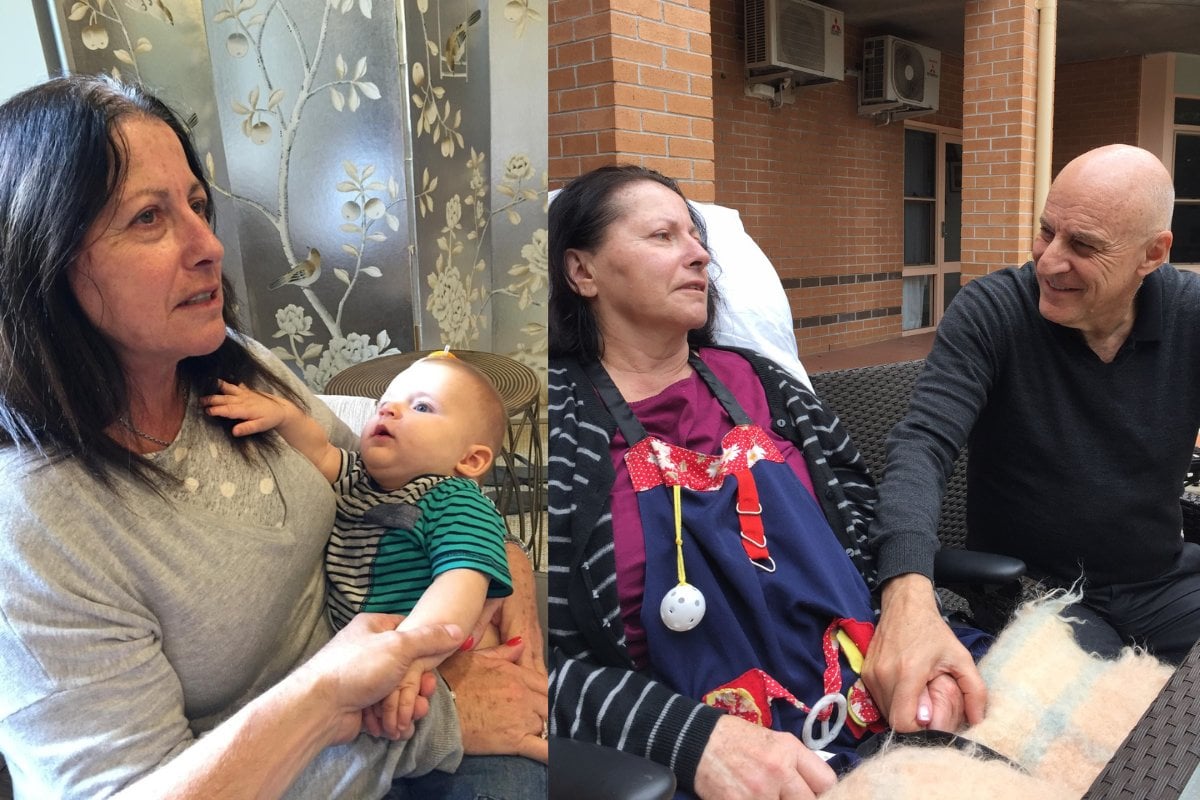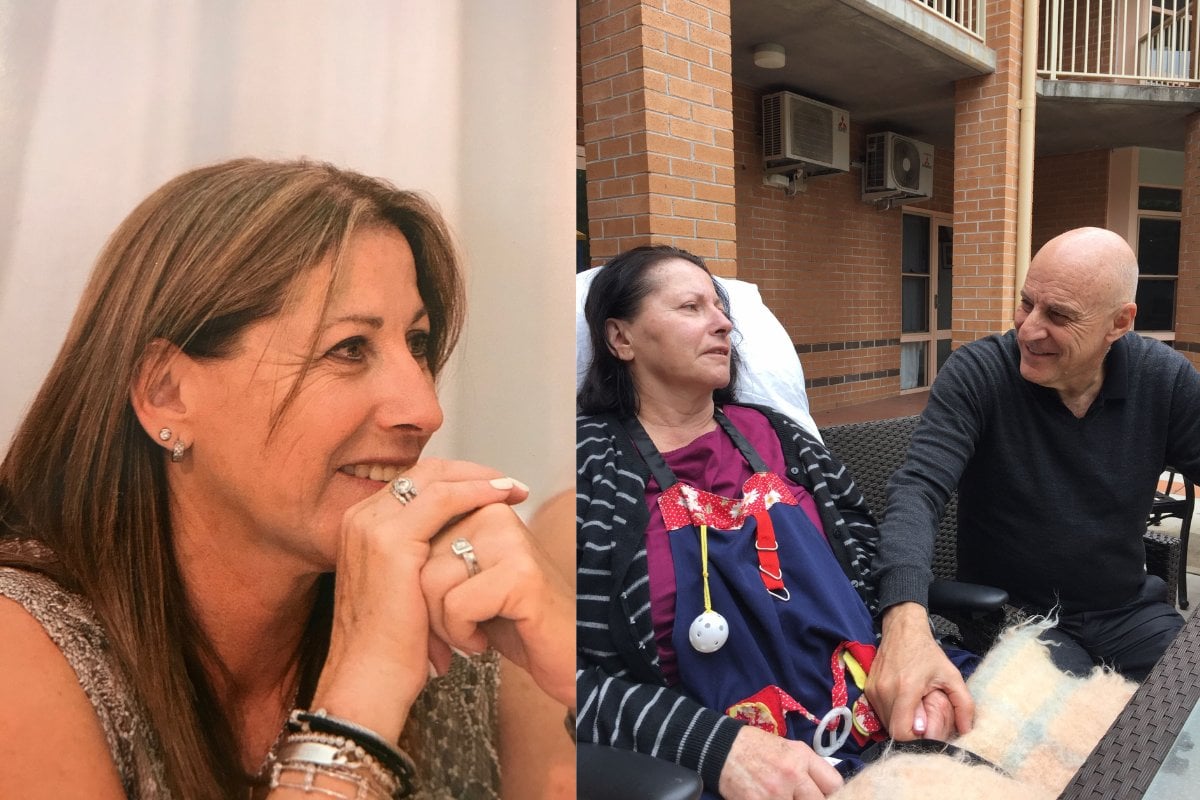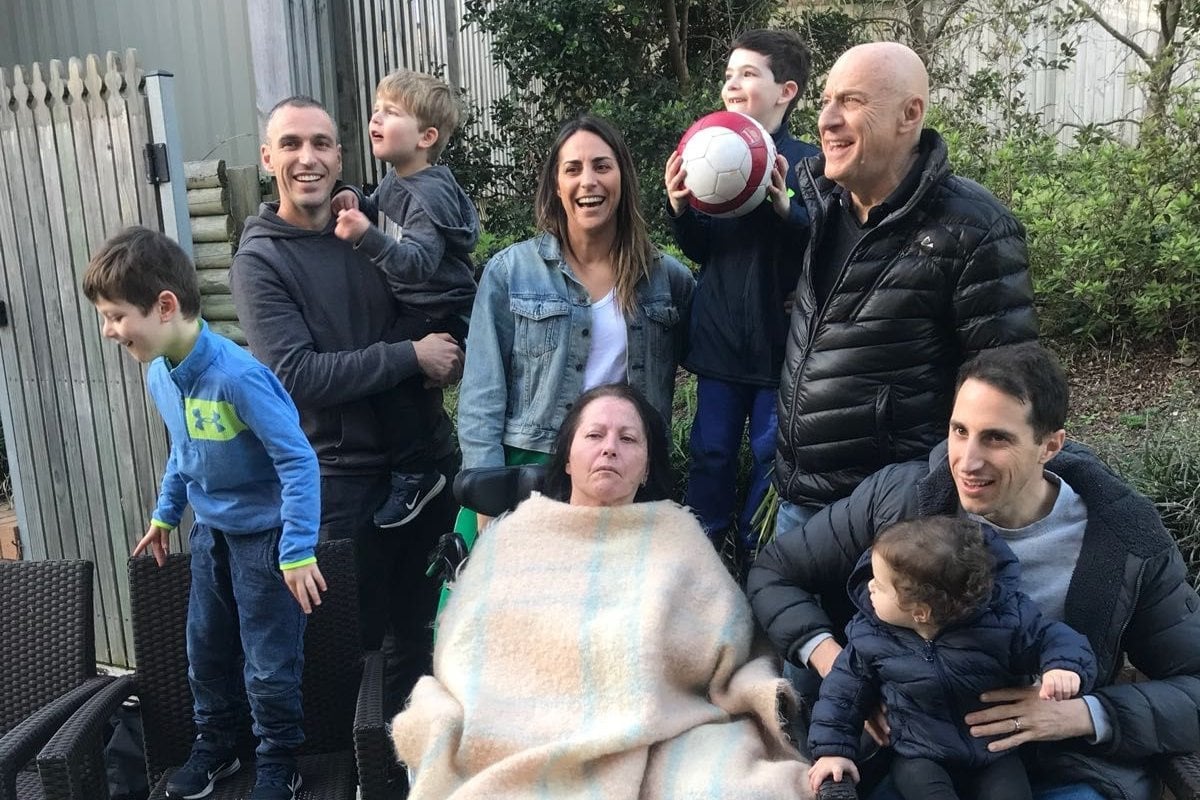
Keri Kitay's mother Terry had always been the bedrock of their family.
She was easygoing, the peacekeeper, the "glue" as Keri says. Terry was also always very vibrant, happy and social. So when her personality started to change, it stumped everyone.
"Initially we thought maybe she's suffering from some sort of depression, as she had become really inward and reserved. My dad, my two brothers and I would be sitting around the dinner table laughing and joking and she was just disengaged from the conversation completely. She was there physically, but mentally she was somewhere else," Keri explains on Mamamia's No Filter podcast.
Keri and her siblings, who were late teens and early adults by this point, were certainly curious and a little confused, but they weren't overly worried.
But there was one moment in particular back in 2010 that has always stuck with Keri.
Watch: a man with early onset Alzheimer's brings Q+A host to tears when sharing his story. Post continues below.
"I met her at our local shopping centre, it was a normal day. We were shopping for a dress for my cousin's wedding. When we were leaving the centre and walking to the carpark, Mum just froze. She had a really worried look on her face and she got really agitated and somewhat teary," says Keri.



Top Comments